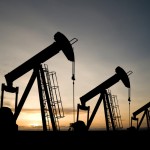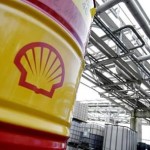Gold advanced on Friday and is headed for the longest weekly rally since March as overall controversial U.S. economic data eased concern over an imminent deceleration of Feds monetary stimulus, which supported dollar-denominated dollars.
On the Comex division of the New York Metal Exchange, gold futures for August delivery traded at $1 330.95 per ounce at 8:36 GMT, up 0.16% on the day. Prices ranged between days high and low of $1 340.15 and $1 327.55 an ounce respectively. The precious metal settled 1.25% higher on Thursday, extending this weeks advance to over 2.7% after surging almost 6% the preceding two.
Gold was supported for a third week as controversial U.S. economic data dampened speculation over an earlier-than-expected scale back of Feds Quantitative Easing program. The Commerce Department reported on Thursday that June’s Durable Goods Orders equaled 4.2%, surpassing expectations for a decrease to 1.4%. May’s reading was revised upwards to 5.2% from 3.6%.
Meanwhile, Durable Goods Orders ex Transportation, which exclude the more volatile automobile sales, disappointed and fell to 0.0%, below May’s upwards revised reading of 1.0% and projections for a fall to 0.5%. Durable Goods Orders ex Defense also underperformed the previous month, but were well above projections. The indicator fell to 3.0% from May’s upwards revised figure of 4.9% but exceeded expectations for a decline to -0.9%.
Despite the overall positive durable goods orders indicators, the U.S. dollar remained pressured and retreated as negative sentiment from the disappointing labor data weighed on the currency. The U.S. Labor Department said in a separate report that during the week ending July 20, 343 000 people have filed for initial unemployment payments, 3 000 more than analysts predicted and 7 000 more than the preceding week.
Lachlan Shaw, an analyst at Commonwealth Bank of Australia, wrote in an e-mail to Bloomberg: “Gold advanced on expectations that the Fed will maintain stimulus measures after U.S. jobless claims rose more than expected.”
The precious metal advanced 8.6% in July and is headed for the best month since January 2012 as the dollar slumped after Ben Bernankes latest testimony to Congress where he supported Fed’s view that Quantitative Easing is still expected to be tapered within the year and brought to an end by mid-2014, if the requirements are fulfilled. However, Bernanke stated the U.S. economy currently needs the central bank’s accommodative monetary policy in the foreseeable future and it can even be accelerated, if recovery slows its pace.
The dollar index, which tracks the greenbacks performance versus a basket of six major peers, traded at 81.74 at 8:38 GMT, down 0.09% on the day. The September contract traded between days high at 81.91 and low of 81.68, the lowest since June 19. The U.S. currency gauge has declined 1.2% so far this week after retreating 2.3% the preceding two.
Meanwhile, gold prices also drew support as some central banks continued to build up reserves in June. Russias hoard grew for a ninth month by 0.3 tons, the smallest since October, to 996.4 tons, while Kazakhstans holdings increased by 1.4 tons to 130.9 tons, the smallest gain since March. Azerbaijan and Ukraines reserves also grew, marking a 2 tons and 2.5 tons gains respectively. On the other side, Turkey sold 3.8 tons of gold in June after buying for 11 straight months and the countrys reserves totaled 441.5 tons. Germany and Mexico also trimmed their holdings.
Elsewhere on the precious metals market, silver, platinum and palladium declined. Silver for September delivery traded at $20.103 an ounce at 8:35 GMT, down 0.25% on the day. Prices ranged between $20.310 and $20.023. Platinum October futures traded at $1 440.90 per ounce, marking a 0.48% daily decline. The metal held in range between days high and low of $1 451.55 and $1 439.80 per ounce respectively. Palladium for September delivery stood at $739.80 an ounce, down 0.13%. Prices held in range between high and low at $742.30 and $735.90 per troy ounce respectively.
Market players are looking ahead into today’s Final University of Michigan Confidence in order to gauge the recovery pace of the U.S. economy following the recently released mixed data. The indicator is expected to have risen to 84.0, up from June’s 83.9.





